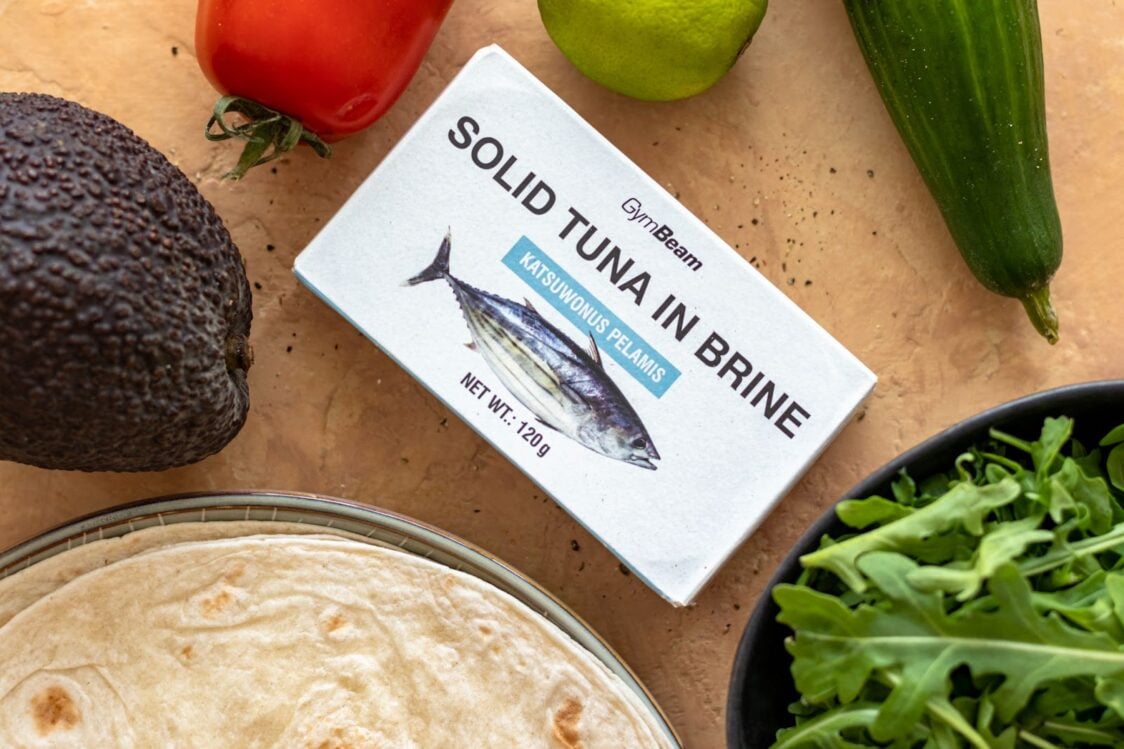Table of Contents
In recent years, there has been more and more talk about the importance of protein. They are no longer just the domain of athletes who want to gain muscle. We can find foods marked “protein” practically everywhere – in supermarkets, at the gym and at the petrol station. But do you know how much protein you should eat to cover your body’s needs? There is no one-size-fits-all value that applies to everyone. It’s a bit more complicated than that. But don’t worry, in today’s article we’ll help you figure out what protein intake is best for you, when to eat it, and which sources should definitely not be missing from your diet.
In our article you will read about protein intake in the case of:
Why is protein important?
Before we address specific quantities and sources, it is a good idea to start by saying why they are so important. Protein is one of the main macronutrients that your body needs in order to function properly. They are the basic building blocks of not only muscles, but also other tissues in the body such as bones, skin, tendons and ligaments. However, they are also involved in the production of energy within cells, biochemical reactions in the body, the transfer of information and nutrients, and your immune system could not do without them. The disadvantage, however, is that you have no emergency stores in the body to tap into when needed. And when the body does reach into its stores, generally you lose muscle (muscle protein), which you don’t want to happen. It is therefore important that you include them regularly in your diet.
But don’t worry, we’ll help you determine how much protein you should have on your plate every day to keep your body running like clockwork. We’ll show you what the optimal amount would be for a 100 kg strength-training athlete and how much a 50 kg yogi should eat.
How much protein should you consume?
There is no one magical value that is universal and applies to all. Each person is individual, with varying needs, especially due to differences in body composition, body weight, age, physical activity or goals. Therefore, in this article, we will help you figure out the best protein intake for you.
- Are you looking for a comprehensive article on proteins that tells you everything you need to know about their function and importance? You will find it right here: Protein: Functions in the Body, Optimal Intake, Sources in Food and the Dangers of Deficiency.
- And you can help yourself with an online energy intake and macronutrient calculator that does the complicated calculations for you.
- Our article What is a Healthy Diet and How to Learn to Eat Healthily will help you develop an optimal diet.
What is the general recommendation for a basic protein intake?
According to general guidelines, the minimum protein intake is 0.8 g per kg/BW (body weight). However, this amount might be sufficient for a person with a sedentary lifestyle who does not move much, does not play sports and does not want to lose weight or gain muscle. However, even for those with a sedentary lifestyle, it seems more appropriate to consume 1 g of protein per kg/BW, which is 70 g of protein for an average 70 kg person. However, according to various sources, it appears that even for people who are completely sedentary, it would be optimal to increase their intake. And active people have a higher protein requirement. [1-5]
How much protein should you consume if you want to gain muscle?
Proteins in our body undergo constant formation (anabolism) and breakdown (catabolism). This is how recycling and order is maintained. Within muscles, these processes are called MPS (Muscle Protein Synthesis), which is the formation of muscle proteins, and MPB (Muscle Protein Breakdown), or the breakdown of muscle proteins. If we want to build muscle mass, it is crucial that MPS dominates between these processes, and a sufficient protein intake will help with this. Otherwise, there is a risk of their breakdown, which is the nightmare of all strength training athletes.
If you base on the basic recommendations supplemented with more recent knowledge, you will come to the conclusion that protein intake should be in the range of 1.4-2.2 g per kg/BW when gaining muscle. Depending on the level of activity (volume, intensity), it is optimal to stick to a lower or higher limit of the specified range. The more active you are, the higher the intake should be. Protein is the basic building block of muscles and allows them to grow and get stronger, which is appreciated by those who regularly work out at the gym. [1-5]
A range of 1.4-2.2 g of protein per kg/BW in regard to sports nutrition would be optimal, for example, for those involved in team sports such as football, hockey, basketball, etc. They also have strength training as part of their sports training, which will help them to build up their muscles, firm up their bodies, withstand competition better and generally have improved results in their sport.
It doesn’t matter if you’re kicking a ball, shooting the puck at a goal or lifting weights, you won’t go wrong if you stick to an average protein intake of 2g per kg/BW.
What will help you gain muscle safely? Discover the principles of a diet for muscle growth in our article 10 Nutritional and Training Tips for Maximum Muscle Growth.

How much protein should you eat if you are of normal weight and want to lose fat?
A higher protein intake will also help with weight loss. Your goal will be to get into a caloric deficit, during which protein can help protect muscle mass from being burned for energy. This will allow your body to primarily get rid of fat. In addition, a sufficient protein intake will help keep hunger and cravings in check, and you will feel more satiated and satisfied after such foods. [6-9]
- If you want to lose weight but don’t exercise, you can stick to a protein intake of 1.2-1.8 g of protein per kg/BW.
- In case you decide to start exercising and you are not obese, a range of 1.6-2.4 g per kg/BW would be the right choice.
Some sources even mention that athletes who have more strenuous strength training and are trying to lose a low percentage of fat (e.g., athletes on a diet) can shift their protein intake to a range of 2.3-3.1 g of protein per kg of fat-free body parts (our total weight after subtracting the weight of adipose tissue). [5]
- Again, you can’t go wrong with weight loss if you stick to an intake of 2 g of protein per kg/BW.
You might be interested in these products:
How much protein should you eat if you are overweight or obese and want to lose weight?
However, it is different with weight loss in people who are overweight or obese, which is objectively caused by an excessive amount of adipose tissue. They don’t want to feed this unnecessarily, so it’s recommended to count on a protein intake for an “ideal” weight, which should be at a BMI of 25. This most often corresponds to an intake between 1.2-1.5 g per kg/BW. Our BMI calculator will help you determine the values.
And if you don’t want to worry about numbers, our article How to Lose Weight Quickly Without Counting Calories can simplify your weight loss.
How much protein should you eat if you want to lose fat and gain muscle at the same time?
You may have heard that you have to choose whether you want to gain muscle or lose weight. As a rule, this is the ideal and most effective scenario, but nothing is impossible. This is shown, for example, by a study conducted on female bikini fitness competitors in their pre-contest training. Out of 27 girls who adhered to an approximate 23% caloric deficit and included both strength and cardio training 5 times a week, 6 of them managed to gain a certain amount of muscle mass and lose fat at the same time. Some of the others were able to maintain the muscle they built, which is also considered a success. In this case, however, it was necessary to have a precisely tailored diet and training plan. Among the non-controllable factors, we can mention that genetics also played a role in their eventual success. Their protein intake ranged from 2.9-3.2 g per kg/BW. [32-33]
What we are more interested in, however, is weight loss and muscle gain in beginners. The results of a study conducted on young men whose BMI bordered on obesity will help us with this. They were asked to exercise 6 times a week for 4 weeks (a combination of cardio and strength training) and to do so they were set a 40% calorie deficit.
- Group 1, with a protein intake of 1.2 g per kg/BW, maintained muscle mass and lost an average of 3.5 kg of fat
- Group 2, with a protein intake of 2.4 g/kg/BW (including whey protein intake after training), lost an average of 4.8 kg of fat and gained 1.2 kg of muscle
As we can see, it will be easier for beginners who have a higher percentage of fat, and because of this start at a higher weight, to lose fat and gain muscle at the same time. Even in this case, the optimal protein intake can be around 2 g per kg/BW.
If you are trying to lose weight, we will advise you what protein to choose in our article How to Select the Best Protein for Weight Loss?
How much protein should you eat if you are an endurance athlete?
Endurance athletes, who train an average of 3 times a week, need protein to repair their damaged muscles, which, however, is not as great as in strength athletes. In addition, endurance athletes do not need as much to stimulate the formation of new muscle fibres as strength athletes, where the priority is to increase strength and muscle volume. For endurance athletes, excessive amounts of muscle would be more of a nuisance. Muscles do consume energy, but an endurance athlete requires them for performance.
- Therefore, if you are involved in endurance sports and go for a run 2 times a week, you can get by with an average intake of 1.2-1.5 g per kg /BW.
- If you are training more, then it would be ideal to be between 1.2-2 g per kg/BW.
This higher range is also ideal if you are doing endurance sports, have a normal weight or want to lose fat. [10]
If you want to boost your endurance performance, you shouldn’t miss our article 11 of the Best Dietary Supplements for Running, Cycling and Other Endurance Sports.

How much protein should pregnant women consume?
Protein is the basic building block of not only muscles but also cells in your body. In addition, during pregnancy, the female body is working to create another organism, for which it again needs “material” and energy. According to the recommendations of the DACH (German-speaking Nutrition Society), there is no need to increase protein intake during the first trimester. In the 2nd and 3rd trimesters it is then advisable to increase your protein intake by approximately 20 g per day. [28]
How much protein should breastfeeding women consume?
Even during breastfeeding, it is necessary to ensure a sufficient intake of all the macronutrients, including protein. The production of breast milk (lactation) is a complex process that increases the mother’s energy expenditure. It is reported that this can be as much as 500 kcal per day. Ideally, protein intake should be maintained at around 1.5 g per kg/BW during breastfeeding. [6] [11-13]
How much protein should seniors eat?
With age, the amount of muscle mass in the body naturally decreases. This phenomenon is known as sarcopenia (loss of muscle mass). In addition, the older body has a slightly harder time digesting protein. Therefore, it is advisable to eat enough and exercise to slow down the loss of muscle mass as much as possible. Protein also helps to maintain healthy bones. Thus, sufficient amounts of protein in the diet can also help to some extent to prevent osteoporosis (thinning of the bones). Thus, in general, protein intake for seniors should be in the range of 1-2 g per kg/BW, depending on what their goal is. Adequate protein intake is one of the factors for healthy ageing. [6,14,15]
- A healthy senior with a sedentary lifestyle should take in 1-1.2 g per kg BW daily.
- A senior with a long-term illness should take 1.2-1.5 g per kg BW daily.
- A senior who wants to lose weight should take in 1.5-2.2 g per kg/BW per day.
- A senior who wants to build muscle mass should take 1.7-2.0 g per kg BW daily.
It is recommended to consult a physician for protein intake above 1.5 g per kg/BW. The incidence of impaired kidney function is much higher in the elderly and excessive protein intake could unnecessarily exacerbate this health problem.

How much protein should vegans consume?
General recommendations for protein intake may vary slightly for vegans. In general, plant-based protein sources have approximately 1/4 less essential amino acids, which are not in optimal proportions. In addition, plant proteins are less easily absorbed, which is mainly due to their antinutritional content. Thus, the protein intake of vegans should be approximately 20% higher than that of people who consume animal products. [16][29]
How to get the most out of plant sources of protein?
- Try probiotics. These will generally help increase the usability of plant proteins. [17]
- Increase your protein intake by approximately 1/4. If you would have used 30 g of whey protein, don’t be afraid to increase the serving size to 40 g.
- Combine different protein sources. Ideally, use legume sources together with cereals or even soy.
- Supplement free essential amino acids separately in the form of supplements. Some plant protein sources are under-represented in certain amino acids (called limiting amino acids). In cereals, the limiting amino acid is lysine, in legumes it is methionine. In general, leucine may also be under-represented in a vegan diet. However, you can also supplement these amino acids through supplements such as l-methionine, l-leucine and l-lysine on their own. You can facilitate their intake directly with an EAA blend, which contains all essential amino acids and is also suitable for vegans.
- If you want to learn more about plant proteins, you shouldn’t miss our article How to Choose the Perfect Plant-Based Protein Powder?
- For tips on other sources of plant protein, read our article What are the Best Sources of Plant Protein and Why Include Them in Your Diet?

Discover our bestsellers:
How much protein should you consume?
For better clarity, you will also find all the important values in this table. Think of them as a guideline based on scientific studies and test for yourself how much protein you will find suitable. [1-5][27-28]
Population | Protein intake in g per kg/BW per day |
|---|---|
| Average population with a sedentary lifestyle | 0.8–1 g |
| Strength-training athletes who are building muscle | 1.4–2.2 g |
| Endurance athletes | 1.2–2 g |
| Athletes in team sports | 1.4–1.7 g |
| Recreational athletes of normal weight who want to lose fat | 1.6–2.4 g |
| Strength athletes who are trying to reach a low body fat percentage | 2.3-3.1 g protein per kg of fat free body mass |
| People who are overweight or obese | 1.2–1.5 g |
| Breastfeeding women | 1.5 g |
| Pregnant women | in the 2nd and 3rd trimesters, increase intake by 20 g per day |
| During recovery after an injury | 2 g |
| Seniors with a sedentary lifestyle | 1–1.2 g |
| Seniors with a long-term illness | 1.2–1.5 g |
| Seniors on a diet | 1.5–2.2 g |
| Seniors who want to gain muscle | 1.7–2 g |
How to share your protein intake throughout the day?
Once you have established your optimal protein intake, you need to spread it out over several portions per day. The number of servings is up to you, but ultimately it’s how much you eat in a day that counts. However, if you were to cover your entire daily protein intake in one meal, you’d probably have a hard time and probably wouldn’t feel well. As mentioned above, you don’t have a reservoir of protein in your body that you can tap into when you need it. Therefore, from the point of view of stimulating new protein formation, it is ideal to eat your daily intake in several smaller portions.
For starters, there is a simple lesson to remember – the higher your protein intake, the more servings you should have in a day to make the most of it and move you closer to your goal. A slim girl who lives a sedentary lifestyle can easily meet her daily protein needs in, say, 3 servings a day. There has even been a study done on young women and seniors who lived a sedentary lifestyle and ate 80% of their daily protein intake in one meal. The result? It had no negative effect on muscle mass. [18-19]
But it’s a little different for active people and athletes, especially strength athletes. More servings spaced 3-5 hours apart will be more beneficial for them in terms of muscle growth. This brings you to the happy medium of 3 main meals and 2 snacks.
Don’t know what foods to find protein in? For tips on protein-packed sources, check out our article Foods That Easily Add Protein to Your Diet.
How much protein should you consume in one serving?
Protein portion sizes depend on the total amount you are supposed to eat in a day and also vary by type. Slower absorbing protein sources, such as solid complex food, don’t oxidise as many amino acids as an energy source, so you can have a larger portion and the body will use it efficiently. In this case, a serving can have as little as 0.4-0.55 g of protein per kg/BW. [20-21]
For faster absorbable protein sources, such as high-quality whey protein, you can get by with a serving of 0.3-0.4 g per kg/BW. However, if you want to avoid complicated calculations, stick to the more universal recommendation of 20-40 g of complete protein. For example, one scoop of protein falls into this range. [20-21]
How much protein should you eat after a workout?
The most crucial serving of protein is often considered to be the one you consume after exercise. This is because it helps with the effective repair of muscles damaged by training. And the sooner this recovery starts, the better. The ideal is to drink a protein drink within 30 minutes after exercise.
So, how much protein should that be?
As already mentioned, the appropriate dose is between 20-40 g.
- If you have exercised your whole body intensively, it is ideal to stick to the upper limit, i.e. 40 g of complete protein per serving.
- In the case that you have done lighter training focused on, for example, just the upper body, an intake of 20 g of protein for the average woman and 30 g of protein for the average man may be sufficient. For vegans, this can again be up to ¼ more.
- But if you stick to the dosage of one 30 g scoop of protein, in most cases you will get it right. For example, a well-absorbed whey concentrate can be an ideal choice.
- If you want to learn more about whey protein types, you shouldn’t miss our article Which Protein to Select? Whey Concentrate, Isolate or Hydrolysate?

Protein intake throughout the day
Post-workout food is one thing. But you shouldn’t forget about protein in your other meals during the day either. How to go about it?
1. Start the day with a hearty serving of protein
After an all-night fast, it is ideal to provide the body with protein first thing in the morning, with which it continues to work on cell renewal and other important bodily processes.
How to add protein to your breakfast?
- Choose a protein-rich meal for breakfast or supplement it with protein powder.
- Eat cottage cheese, Skyr, Greek-style yoghurt and other protein-rich dairy products.
- Make an omelette, hard-boiled eggs or scrambled eggs. Liquid egg whites are also a perfect helper in the kitchen.
- Bake yourself some protein treats, perhaps by using our fitness recipes.
2. Include protein snacks
You can now find great sources of protein practically everywhere. And if you don’t have a protein snack on hand, it’s easy to create one with just a few ingredients. You can eat a protein snack at any time of the day – to fight hunger, satisfy cravings, before training, after training, before bedtime and, in short, whenever you need to provide your body with quality protein.
What can a balanced protein-rich snack look like?
- bread with ham, cheese, egg or tofu
- sweet or savoury cottage cheese with vegetables, fruit or complex carbohydrates
- protein treats as per our recipes
- protein biscuits, bars, wafers, flapjacks, cream shakes with fruit pieces
- whey or vegan protein drink
- dried meat (Jerky)

3. How to be sure to include enough protein in your main meal?
Everyone probably already knows that a main meal should contain a portion of complex carbohydrates, vegetables, fat and protein. It is ideal to rotate the sources of these so that you have a varied diet and sufficient intake of all the amino acids.
Which protein sources should you include in your main meals?
- meat – beef, pork, chicken – ideally choose sources that contain less fat
- seafood and fish – in addition to protein, it is also an important source of omega-3 fatty acids
- canned chicken breast, tuna or sardines
- cheese and dairy products
- plant-based meat alternatives such as tofu, seitan, tempeh
- legumes such as beans, soybeans, chickpeas, lentils, peas
- quinoa, oats (also a source of complex carbohydrates)
- almonds and peanuts (both a source of fat)
- If you are in a hurry or don’t feel like cooking, you will appreciate ready-made, high-protein meals that have a balanced ratio of all the macronutrients. Would you like to try Asian-style chicken and rice, chicken curry with rice, Italian-style chicken and pasta or Mexican-style chicken and rice?
- For more tips on protein sources, check out our separate article Affordable Protein-Rich Foods.
- And for lots of ideas on how to add protein to your diet, read our article How to Sneak More Protein into Your Diet?

4. How is it with having protein before bedtime?
Maybe you’ve heard the term nighttime protein or you have someone in your circle who regularly eats protein before bed. This is most often done by strength athletes who are particular about every detail and want to maintain an increased production of muscle protein overnight. This is exactly what cottage cheese or the so-called night protein, also known as micellar casein, is ideal for.
Both of these protein sources have a high biological value and stand out for their slower absorption, which is ideal during the night when you are hungry. Still, it is absolutely crucial to meet the total daily protein requirement and only then tweak these details, such as timing and choice of specific protein sources.
For more tips on what to eat after a workout before going to bed, check out our article 10 Tips on What to Eat After a Workout When You Workout Before Bed.
Can a high protein intake be harmful?
You may have wondered, with all the talk about the importance of protein, whether a high protein intake carries with it some risks. Or maybe you’ve even heard that high protein intake damages the kidneys, the liver, or perhaps causes bone thinning? Let’s debunk the most common myths associated with a high protein intake.
1. Myth: Protein causes acidification in the body
According to this theory, excessive protein intake should cause acidity, which the body tries to neutralise by higher calcium breakdown from the bones, which could negatively affect their quality. However, no relevant studies have confirmed this. Excessive protein intake may lead to higher urinary calcium excretion, but this has no effect on bone health. The concentration of calcium in the urine is not related to the amount of calcium in the body. There is no need to worry about any decalcification. The increased amount of calcium excreted is probably due to some extent to the simultaneous stimulation of calcium absorption from food in the small intestine. [22-23]
Conversely, there are studies that mention the importance of protein for bone health, as confirmed by the EFSA (European Food Safety Authority). Therefore, you certainly don’t have to worry about them in this respect. [24] [30] [31]
2. Myth: Protein damages the kidneys and liver
There’s even a study that looked in detail at the effect that increased protein intake has on the liver and kidneys. Over the course of one full year, 14 strength-training respondents ingested protein every day in the range of 2.5-3.3 g per kg /BW. After one year, there was no effect on the kidneys or blood lipid levels in these men. The fact that the men were eating more calories through protein occurred and yet there was no increase in adipose tissue. [25]
If you are physically very active and have a higher protein intake, it is good to check the condition of your kidneys, liver and overall health with regular preventive check-ups and blood tests at the doctor’s office.
3. Myth: Protein makes you fat
The reason you gain weight is due to your lifestyle and overall excessive calorie intake. It would be rather short-sighted to blame protein. If your intake is high, it doesn’t matter so much which macronutrient the calories are from. It is true, however, that through highly processed foods you can easily eat more calories. This puts you into a caloric surplus, where you take in more energy than your body can burn. The excess energy is then stored as fat.

How to make your protein intake easier? Harness the power of protein
You probably already know that everyone should take an interest in their protein intake. In this context, we must of course mention the great helpers in the form of various proteins that can make your protein intake much easier. There is no need to be alarmed about them. They are a concentrated source made primarily from milk, or in the case of vegan proteins, for example, from legumes or cereals.
- If you are not vegan, universal whey concentrate will be the best choice for you in terms of the price-performance ratio.
- If you’re on a competitive bulking diet and you’re dealing with every gram of macronutrients consumed, bet on whey isolate. This is also suitable for those who are lactose intolerant.
- For professional athletes who want the fastest absorbable protein, there’s whey hydrolysate.
- For vegans, a multi-source protein, that combines protein from cereals and legumes is the best choice, improving the overall amino acid spectrum and thus the final quality of the protein.
- Also popular among vegans is soy protein, which is usually cheaper than multi-source protein and most similar to whey protein in its amino acid spectrum.
- And there is also a protein powder tailored to women’s needs, which is additionally enriched with fat burners.
Proteins and their usage for athletes and non-athletes
When you say protein, many people probably think of the drink that strength athletes drink after their workouts. But that’s not its only use. Thanks to its properties, it is also suitable for those with a sedentary lifestyle who want to eat a balanced diet.
When to use protein?
- when you want to add quality protein to your regular meals
- in the preparation of sweet desserts where you want to increase the protein content (can be added to batters, creams and frostings)
- as a pre-workout drink in case you haven’t eaten for some time before training
- on its own as a post-workout drink to aid recovery
- as a snack in case you get hungry and don’t have time to prepare a meal
- prior to sleeping
- whenever you need to up your protein intake

What should you remember?
As you can see, it’s not as complicated as it might seem with protein after all. Sufficient intake should be a concern for everyone, and if you’re exercising regularly or trying to lose weight, they can be a great tool to help you reach your goal. Although you may come across different recommendations, the vast majority of athletes are happy to stick to around 2g per kg/BW. Try to keep your diet varied and include protein from a variety of sources. That way, you’ll cover the ills of a less favourable amino acid spectrum, for example, and can reap the maximum benefits.
Do you have anyone among your friends who avoids protein or doesn’t address their protein intake? Share our article with them so they can learn how they can help achieve more than just their fitness goals.
[1] Ralf Jäger et al. – International Society of Sports Nutrition Position Stand: protein and exercise – https://jissn.biomedcentral.com/articles/10.1186/s12970-017-0177-8
[2] Chad M. Kerksick et al. – International society of sports nutrition position stand: nutrient timing – https://jissn.biomedcentral.com/articles/10.1186/s12970-017-0189-4
[3] What Are Proteins and What Is Their Function in the Body? – https://www.eufic.org/en/whats-in-food/article/what-are-proteins-and-what-is-their-function-in-the-body
[4] John D Bosse et al. – Dietary protein to maximize resistance training: a review and examination of protein spread and change theories – https://pubmed.ncbi.nlm.nih.gov/22958314/
[5] Eric R Helms et al. – A systematic review of dietary protein during caloric restriction in resistance trained lean athletes: a case for higher intakes – https://pubmed.ncbi.nlm.nih.gov/24092765/
[6] Optimal Protein Intake Guide – https://examine.com/guides/protein-intake/
[7] Kim J. et al. – Effects of dietary protein intake on body composition changes after weight loss in older adults: A systematic review and meta-analysis. – – https://doi.org/10.1093/nutrit/nuv065
[8] Westerterp-Plantenga, M. S., Lejeune et al. – High protein intake sustains weight maintenance after body weight loss in humans. – https://doi.org/10.1038/sj.ijo.0802461
[9] Waliłko, E. et al. – High-Protein or Low Glycemic Index Diet—Which Energy-Restricted Diet Is Better to Start a Weight Loss Program? – https://doi.org/10.3390/nu13041086
[10] D Travis Thomas et al. – American College of Sports Medicine Joint Position Statement. Nutrition and Athletic Performance – https://pubmed.ncbi.nlm.nih.gov/26891166/
[11] Compendium of Physical Activities – https://sites.google.com/site/compendiumofphysicalactivities/Activity-Categories/runnin
[12] ACOG.Breastfeeding Your Baby – https://www.acog.org/en/womens-health/faqs/breastfeeding-your-baby
[13] Tahir et al. – Association of Full Breastfeeding Duration with Postpartum Weight Retention in a Cohort of Predominantly Breastfeeding Women – https://doi.org/10.3390/nu11040938
[14] Ian Janssen, Steven B Heymsfield, Robert Ross – Low relative skeletal muscle mass (sarcopenia) in older persons is associated with functional impairment and physical disability – https://pubmed.ncbi.nlm.nih.gov/12028177/
[15] Jean-Philippe Bonjour – Dietary protein: an essential nutrient for bone health – https://pubmed.ncbi.nlm.nih.gov/16373952/
[16] Stefan H. M. Gorissen et al. – Protein content and amino acid composition of commercially available plant-based protein isolates – https://link.springer.com/article/10.1007/s00726-018-2640-5
[17] Ralf Jäger et al. – Probiotic Administration Increases Amino Acid Absorption from Plant Protein: a Placebo-Controlled, Randomized, Double-Blind, Multicenter, Crossover Study – https://pubmed.ncbi.nlm.nih.gov/32358640/
[18] M A Arnal et al. – Protein pulse feeding improves protein retention in elderly women – https://pubmed.ncbi.nlm.nih.gov/10357740/
[19] M A Arnal et al. – Protein feeding pattern does not affect protein retention in young women – https://pubmed.ncbi.nlm.nih.gov/10867039/
[20] Oliver C Witard et al. – Myofibrillar muscle protein synthesis rates subsequent to a meal in response to increasing doses of whey protein at rest and after resistance exercise – https://pubmed.ncbi.nlm.nih.gov/24257722/
[21] Daniel R Moore et al. – Ingested protein dose response of muscle and albumin protein synthesis after resistance exercise in young men – https://pubmed.ncbi.nlm.nih.gov/19056590/
[22] Fenton, T. R. – Meta-analysis of the quantity of calcium excretion associated with the net acid excretion of the modern diet under the acid-ash diet hypothesis – https://pubmed.ncbi.nlm.nih.gov/18842807/
[23] Tanis R Fenton et al. – Low urine pH and acid excretion do not predict bone fractures or the loss of bone mineral density: a prospective cohort study – https://bmcmusculoskeletdisord.biomedcentral.com/articles/10.1186/1471-2474-11-88
[24] Jean-Philippe Bonjour – Dietary protein: an essential nutrient for bone health – https://pubmed.ncbi.nlm.nih.gov/16373952/
[25] Jose Antonio et al. – A High Protein Diet Has No Harmful Effects: A One-Year Crossover Study in Resistance-Trained Males – https://pubmed.ncbi.nlm.nih.gov/27807480/
[26] Mandelová Lucie a Hrnčířová Iva, Základy výživy ve sportu. Brno: Masarykova univerzita
[27] Sousana K. Papadopoulou – Rehabilitation Nutrition for Injury Recovery of Athletes: The Role of Macronutrient Intake – https://www.ncbi.nlm.nih.gov/pmc/articles/PMC7468744/
[28] Protein – https://www.dge.de/wissenschaft/referenzwerte/protein/
[29] Daniel R. Moore – Maximizing Post-exercise Anabolism: The Case for Relative Protein Intakes – https://www.ncbi.nlm.nih.gov/pmc/articles/PMC6746967/
[30] EFSA sets population reference intakes for protein – https://www.efsa.europa.eu/en/press/news/120209
[31] Jose Antonio et al. – High protein consumption in trained women: bad to the bone? – https://jissn.biomedcentral.com/articles/10.1186/s12970-018-0210-6
[32] Juha J. Hulmi et al. – The Effects of Intensive Weight Reduction on Body Composition and Serum Hormones in Female Fitness Competitors – https://www.ncbi.nlm.nih.gov/pmc/articles/PMC5222856/
[33] Thomas M Longland et al. – Higher compared with lower dietary protein during an energy deficit combined with intense exercise promotes greater lean mass gain and fat mass loss: a randomized trial – https://pubmed.ncbi.nlm.nih.gov/26817506/


Add a comment